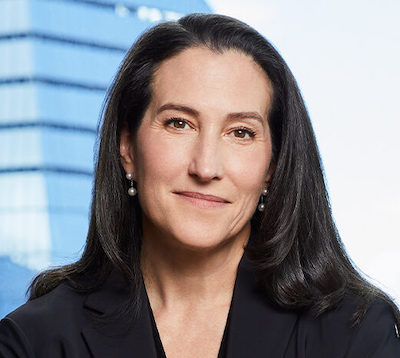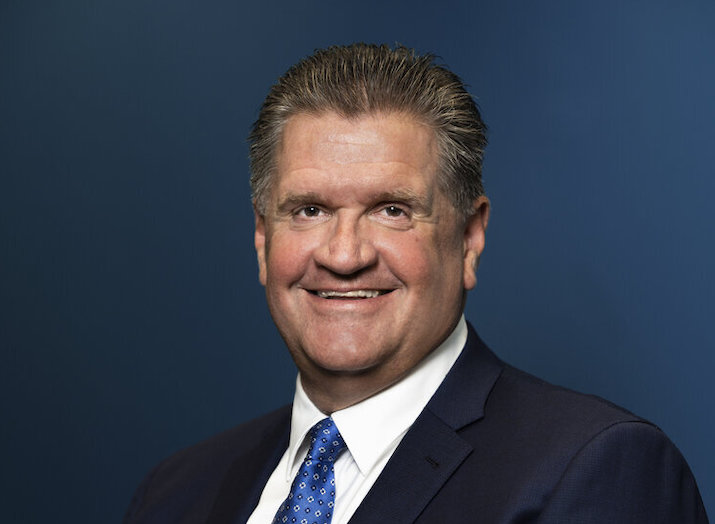SVG Sit-Down: Program Productions’ Bob Carzoli, Integrum’s Kathy Reiland on the Strategy Behind the New Alliance
The primary goal is to help PPI expand beyond sports
Story Highlights
At NAB 2024, PPI (Program Productions Inc.) highlighted some new financial muscle behind it, thanks to a deal with private-equity investment firm Integrum Holdings announced a few weeks prior to the show. The relationship is designed to help PPI expand into new market segments. SVG caught up with Kathy Reiland, member, Investment Committee, Integrum, and Bob Carzoli, chairman, PPI, about the deal and what it means to the company, its employees, and its clients and freelancers.

Integrum’s Kathy Reiland: “There’s a very bold vision here for PPI, and PPI has been bold in its history.”
What do you see as the opportunities in this relationship?
Reiland: A lot of times, private equity is kind of slapped with the reputation that all we care about is the numbers and the math and all that stuff. But, from our perspective, partnering with great management teams is job one. When we had the opportunity to get to know PPI, we saw the perfect intersection of people and technology.
Carzoli: One of the things Integrum recognized is that we had built this incredibly strong management team over the last decade. Alongside that, we have built this incredible software platform that allows us to run 30,000 events a year without a piece of paper or a pencil.
While we still believe there’s significant white space left in the sports-broadcast industry, we started to look at adjacencies that we can make a move into and that today look very much like sports broadcasting did a dozen years ago, with small, highly fragmented players. For example, there are concerts, festivals, facilities, conventions, corporate work, and corporate events.

PPI’s Bob Carzoli, chairman: “We started looking to outside capital and to try to build outside of sports with smart, hardworking people.”
But how could we accelerate the process to get involved with them? We think that finding PPI-type companies in each of those markets and then partnering with them rather than competing with them is the way forward. Part of that also means [redeveloping] ProCrewz to meet the needs [of those segments and partners].
About a year ago, we started the process of looking to outside capital and to try to build outside of sports with smart, hardworking people and leverage their four-quadrant knowledge. The advantage of Integrum is [not only that] they can look at our business from the outside but also that their culture matches ours as they are very much people-first. With the right partner, we think there are no limits on what we can grow this business into as we’re doing Coachella and Stagecoach music festivals under XLT management services.
Does Integrum look at ProCrewz as being the connective tissue for all of these segments?
Reiland: In investing in businesses and helping them move into adjacencies, you have to understand the core competencies and the people piece of it. But ProCrewz technology and its ability to morph to service these similar businesses provides the baseline opportunity to marry technology with whatever the business is. Make no mistake: the next potential investment is a different business with different needs; but ProCrewz can form the basis of that business. And that is super exciting to us.
How will this relationship with Integrum help the freelancers who rely on ProCrewz?
Carzoli: We can bolt on other work — like music and entertainment, festivals, conventions, and corporate events — and go to our people who are already on the ground and expand the universe of available work on a local basis. Hopefully, what ends up happening is, a lot of our people don’t have to get on an airplane anymore and fly to go to work. Instead, they can be home with their families and make an equal amount of living without ever being on an airplane.
We also can start using this for recruiting, training, and placement and as a way for us to fill that pipeline.
Kathy, what’s next now that the relationship has been established?
Reiland: One of the things from our perspective in investing in any business is having that total alignment on the growth strategy and how we think about things. As Bob laid out, the theory is that we can take what has worked so well here and take it to these other markets. We are super excited to help where we can on that front.
There’s a very bold vision here for PPI, and PPI has been bold in its history. This next phase carries that through and now has, as Bob said, the capital wherewithal in addition to the intellectual-capital wherewithal so we can marry vision with true opportunity.
Bob, in some of these situations, the current customer base can get a little nervous about how growth impacts their needs and relationships. How are you assuaging those fears?
Carzoli: There are two things. First, we’ve been open and transparent through the entire process, and Integrum spoke with a number of our customers ahead of the deal. We had honest and transparent conversations with our staff to assuage some of their issues and fears. We also paid out $20 million in bonuses to our employees and rewarded them for what they did for us.
For our customers, if there’s an issue, they can still pick up the phone and get me at 2 a.m., and the people they are dealing with will be the same. That’s really what people are going to care about. At the end of the day, everyone — other than us — is going to forget about the acquisition.
For us, it’s just going to be, can we continue to deliver on the promises that we make to the people that we work for and the people that we work with? The results will be easy to track. Are our employees still happy? Are our union partners still happy? And are our customers happy? I have no doubt whatsoever that none of that’s going to change.
Reiland: When we had the opportunity to meet customers, they said that problem-solving is part of the DNA of PPI. One of them said PPI was like Advil. That stuck with us internally and speaks to who PPI is and the visceral connection with clients. That won’t change.
Jason Dachman contributed to this article. This interview has been edited for length and clarity.
